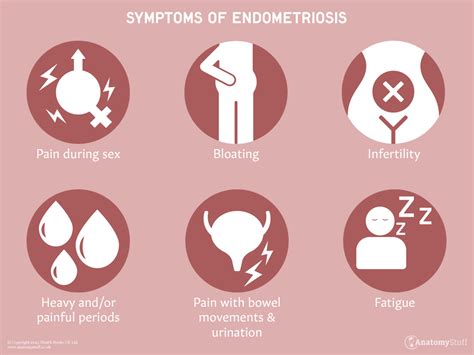How To Know If You Have Endometriosis: Recognizing the Signs and Symptoms
Endometriosis is a condition where tissue similar to the lining of the uterus (the endometrium) grows outside of the uterus. This misplaced tissue can cause significant pain and fertility problems. While only a doctor can diagnose endometriosis, understanding the common signs and symptoms can help you advocate for yourself and seek appropriate medical attention. This guide will explore the key indicators and help you determine when to consult a healthcare professional.
Common Symptoms of Endometriosis
The symptoms of endometriosis can vary greatly from person to person, and some women experience no symptoms at all. However, some common signs include:
Pain: The Defining Characteristic
Pain is often the most prominent symptom of endometriosis. This pain can manifest in several ways:
- Pelvic pain: This is a chronic, dull ache or sharp pain in the lower abdomen or pelvis. It may worsen during menstruation.
- Dysmenorrhea (painful periods): Severe cramping that significantly impacts daily life is a common symptom. Over-the-counter pain relievers often provide insufficient relief.
- Dyspareunia (painful intercourse): Pain during or after sexual activity can be a strong indicator of endometriosis.
- Painful bowel movements or urination: Endometrial tissue can affect the bowel and bladder, causing pain during these activities.
- Lower back pain: Pain in the lower back, often related to menstruation, is another potential symptom.
Other Potential Signs of Endometriosis
Beyond pain, other symptoms can suggest the presence of endometriosis:
- Heavy bleeding (menorrhagia): Prolonged or excessively heavy menstrual bleeding can be a significant symptom.
- Infertility: Endometriosis can interfere with fertility, making it difficult to conceive.
- Fatigue: Many women with endometriosis experience persistent fatigue and low energy levels.
- Bloating: Abdominal bloating, particularly around menstruation, is another potential sign.
- Nausea and vomiting: Some individuals may experience nausea and vomiting, particularly during menstruation.
- Diarrhea or constipation: Gastrointestinal issues can be related to endometriosis impacting bowel function.
When to See a Doctor
If you are experiencing any of these symptoms, particularly persistent pain or difficulty conceiving, it's crucial to seek medical attention. Don't hesitate to schedule an appointment with your gynecologist or another healthcare professional. Early diagnosis and treatment can significantly improve your quality of life and fertility prospects.
Diagnosing Endometriosis: Beyond Self-Assessment
While this information helps you recognize potential symptoms, self-diagnosing is not possible. Only a healthcare professional can diagnose endometriosis through a combination of:
- Pelvic exam: A physical examination to assess the pelvic area.
- Imaging tests: Such as ultrasound or MRI scans to visualize the pelvic organs.
- Laparoscopy: A minimally invasive surgical procedure to visually inspect the pelvic organs and obtain a tissue sample for confirmation.
This information is for educational purposes only and does not constitute medical advice. Always consult with a healthcare professional for any health concerns or before making any decisions related to your health or treatment. They can provide an accurate diagnosis and recommend the most appropriate course of action for your individual situation.
